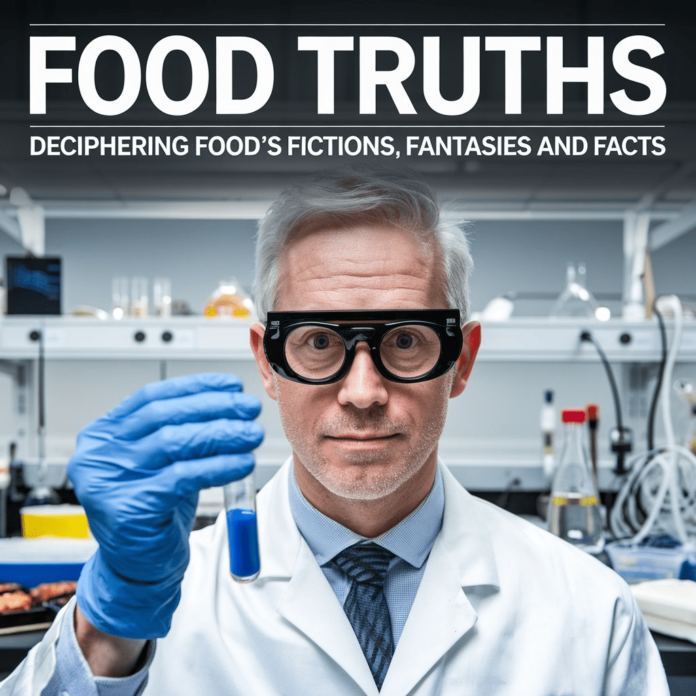In the second episode of Food Truths, part of the newly launched Spoon Podcast Network, host Eric Schulze engages in a thought-provoking conversation with Jack Bobo, the Executive Director of the Rothman Family Institute for Food Studies at UCLA. Their discussion delves into the intricate dynamics of food production, consumer psychology, and the rapidly evolving landscape of alternative protein markets. A key takeaway from this episode is the urgent need for the food industry to enhance its communication strategies with consumers, integrating insights from consumer psychology from the outset rather than treating it as an afterthought.
As Bobo aptly stated on LinkedIn, “How we communicate innovation can mean the difference between acceptance or rejection, progress or pushback.”
A Career Rooted in Food and Policy
The episode begins with an exploration of Jack Bobo’s diverse career trajectory, which has deep roots in agriculture and food policy. Bobo’s journey began on a self-sustaining farm in Indiana, where he initially focused on environmental science and law. However, his career took a significant turn when he joined the U.S. State Department. It was here that he identified agriculture as a crucial factor contributing to pressing environmental issues such as deforestation and excessive water usage. This realization led him to advocate for sustainable food production as a viable solution to these challenges, ultimately shaping his ambition to influence global food policy.
After spending a decade at the State Department working on matters related to agricultural biotechnology, sustainability, and food security, Bobo transitioned to the private sector, where he concentrated on innovative food technologies. Currently, as the head of UCLA’s Rothman Family Institute for Food Studies, Bobo is not just analyzing market dynamics; he is actively navigating the competing narratives within food and agricultural technology. His goal is to bridge existing divides by employing scientific understanding and psychological insights to reshape discussions surrounding food, innovation, and sustainability.
Consumer Psychology and Food Communication
A significant insight from Bobo’s tenure at the State Department is the critical role that psychology plays in shaping public perceptions of food. He observed that introducing conversations with a focus on science and technology often alienated consumers instead of persuading them. Consequently, Bobo began to incorporate behavioral science, cognitive psychology, and marketing strategies to gain a more profound understanding of consumer decision-making processes regarding food.
“Science at the beginning of the conversation just polarizes the audience,” Bobo explained. “Those who agree with you, agree more. But those who don’t actually push further against you. The key is to frame messages in ways that connect emotionally and align with people’s existing values.”
Bobo argues that many companies in the alternative protein sector falter because they prioritize their mission over the sensory experiences that consumers seek. When it comes to food, consumers are driven by factors such as taste, convenience, and price, rather than environmental impact or technological innovation. To effectively win over consumers, companies must offer indulgent, satisfying products and market them in a manner that resonates with existing consumer preferences, rather than attempting to convert them through ideological persuasion.
Despite the progress made by the alternative protein industry, Bobo believes that many companies have misjudged their approach. “Most people won’t buy your product because they believe what you believe,” he stated. “They will buy it in spite of it. You need to get your personal beliefs out of the way and let them enjoy your product without feeling like they have to adopt a new ideology.”
Bobo also addressed the unnecessary conflicts arising between traditional meat and dairy industries and alternative protein producers. He posits that the primary competitor for dairy products is not plant-based milk but rather bottled water. Similarly, he suggests that the alternative protein sector should focus less on the elimination of meat and more on coexistence within a diverse food ecosystem.
At UCLA, Bobo is dedicated to addressing the growing tensions within food debates by applying principles of behavioral science to communication strategies. His vision includes fostering collaboration across the food industry to reduce the polarization that often hampers progress. By gaining a better understanding of consumer psychology, he believes that companies can introduce sustainable and nutritious food innovations more effectively, without alienating the very consumers they aim to serve.
Listeners can engage with the full conversation through various platforms, including Apple Podcasts and Spotify. For those interested in exploring this topic further, watching the complete discussion is also available below. If this resonates with you, consider subscribing to Eric’s new podcast and leaving a review.
Conclusion
The conversation between Eric Schulze and Jack Bobo sheds light on the intricate relationship between consumer psychology and food communication. As the food industry grapples with rapid changes and increasing consumer awareness, the insights shared in this episode serve as a crucial reminder of the need for better communication strategies that prioritize consumer understanding and engagement. By embracing these principles, the industry can foster a more inclusive dialogue around food innovation and sustainability, ultimately benefiting both producers and consumers alike.




